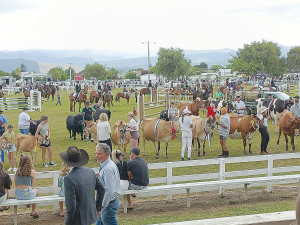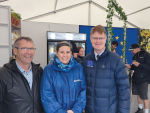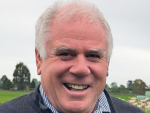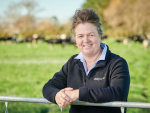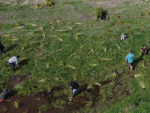Christchurch City Council and the Canterbury Agricultural and Pastoral Association (CAPA) have signed an agreement which will open more of Canterbury Agricultural Park for public use while helping to provide long-term certainty for the A&P Show.
News of the deal comes hard on the heels of last week’s shock announcement by the Canterbury A&P board that its November show (known since 2018 as The New Zealand Agricultural Show) will not be held this year.
Citing financial pressures, the board said it would be unwise to proceed with a full-scale public show for 2024 but would plan for the return of “a new and exciting Show” in 2025.
The council has now announced a deal under which it has paid CAPA $5 million for the purchase of the remaining 95 years of a 100-year lease on five hectares of council land on Wigram Road close to the Agricultural Park where the show is held. Council general manager citizens and community Andrew Rutledge says this agreement is beneficial to both parties.
“The A&P Show is such an important event for both the rural and local community, bringing people from around the country to our city.
“This agreement will support the future of the Show and the surrendering of the lease will allow us to use part of the land for additional sports fields in the south-west of the city,” says Rutledge.
Conditions of the deal are that CAPA uses $1 million to pay of its existing loan with the council while the remaining $4 million will go to a newly established, capital protected charitable investment Trust.
“The creation of a capital protected investment fund to be administered by the Trust will generate an ongoing revenue stream to support operational costs of running the show,” said Rutledge.
The Trust will begin operating in June.
However, the deal does not change the decision not to stage a public show this year, although livestock judging and competitions will still go ahead, as they did through two Covid cancellations.
In a press release announcing the cancellation, board chair Stewart Mitchell said the association’s ongoing business model was under review. “Twelve months of costs and three days of revenue is not a great business model by anyone’s analysis,” said Mitchell.
The Royal Agricultural Society believes the A&P movement remains very strong despite the cancellation of this year’s Canterbury show – usually the country’s largest.
Rachel Walker, the president of the Royal Agricultural Society, said she was saddened “like everyone else” to hear of the cancellation.
But talking to other A&P Associations up and down the country she was getting the “resounding message” that they were in a strong position, with good public interest in terms of spectator numbers and engagement.
“I’m hearing the word ‘record’ used a lot,” she said. “Canterbury is not necessarily indicative of the rest of the country in many respects because they have a very different business model and a very different structure.”
The RAS is a chartered organisation that oversees and supports 94 annual A&P shows and events across New Zealand plus a number of breed societies and the like.
“You talk to people up and down the country about their shows and they are very excited about them,” said Walker.
“They run shows that work for their community but they have very different situations and costs and the like, so you can’t look at the Canterbury situation and think it must apply around the rest of the country.”
Walker said Canterbury was unusual in operating as a much wider organisation than purely running a threeday event. Other A&P Associations do not own or have responsibility for assets throughout the year but instead get access to grounds for a week or two, and then hand them back to the owner.
“It’s like trying to compare the Sydney Opera House with a local community hall.”
Mid-Canterbury Federated Farmers president David Acland said the Canterbury show was a big part of the community calendar and he looked forward to it being a big part of the calendar again in the future.
The November show came at a great time of year for farming families, when calving, lambing and even school and university exams were over, so they could look forward to a week to get into town to catch the show and the races.
“It’s not Show Week without the Show.”





